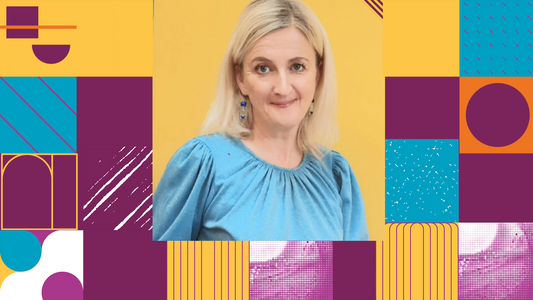Don't worry if you feel unprepared for menopause, you're not the only one. The conversation is happening – finally! – but we have a long way to go when it comes to open dialogue about menopause.
Women’s understanding of menopause isn’t enough to prepare them
Worryingly a July 2021 study showed that close to half of women don’t know the difference between perimenopause and menopause. Peri-menopause is the transition to menopause. Menopause is when you stop menstruating for 12 consecutive months.
And according to research published in Menopause, the Journal of The North American Menopause Society, the onset of menopause symptoms may begin earlier than previously assumed by doctors. They conducted this survey globally among 1,500 women between 35 to 55.
Many women find perimenopause confusing – or don’t know what it is at all
The beginning of peri-menopause is typically associated with clear changes in the menstrual cycle. During this time your periods might become noticeably longer or more irregular. However, the new study finds that many women experience common symptoms of menopause while they are still getting monthly periods. This is something that is only going to lead to confusion.
“The symptom picture for those with menstrual irregularities that qualify them for the ‘scientific’ definition of perimenopause is quite similar to the symptom picture for those in the same age group with only minimal menstrual changes,” highlighted Dr Marcie Richardson, an obstetrician/gynaecologist at Atrius Health in Massachusetts and one of the study’s authors.
Nina Coslov, the lead author on the study and co-founder of Women Living Better, the group that conducted the research, said: “I knew from my own experience and that of so many others who had shared their stories with me that many of us experience menopause-related changes before cycles are noticeably different when periods are still coming monthly.”
There is surprisingly little information on the science of peri-menopause. Nancy Fugate Woods of the University of Washington and another of the study’s authors explained: “When women approach healthcare providers about their symptoms, they are often told that what they are experiencing couldn’t be menopause, because they’re too young [and] still have regular menstrual periods.”
It is important that women and healthcare professionals have more information about peri-menopause and its expectations while cycles are still fairly regular. This will help more women get the proper support and treatment they need.
To find out more about your menopause health, read our post on what causes early menopause.
Menopause research is still in the works
It is up to all women to be aware of the path to menopause. Subtle changes can begin from as young as 35. This awareness will give women better options earlier and tackle the sense of isolation they often report. Knowing more about these changes will also help you feel less unprepared for menopause when it comes.
We know that understanding women’s reproductive hormones is a work in progress – for doctors, researchers, scientists, and women themselves. The researchers of the July 2021 study say they hope that their findings begin to fill the gaps in female health in midlife and into perimenopause.
We welcome and applaud this research at KeyForHer. We like to keep up with all the new feminine health updates as they come out. When any similar case studies are available we will be sure to share them with you.













